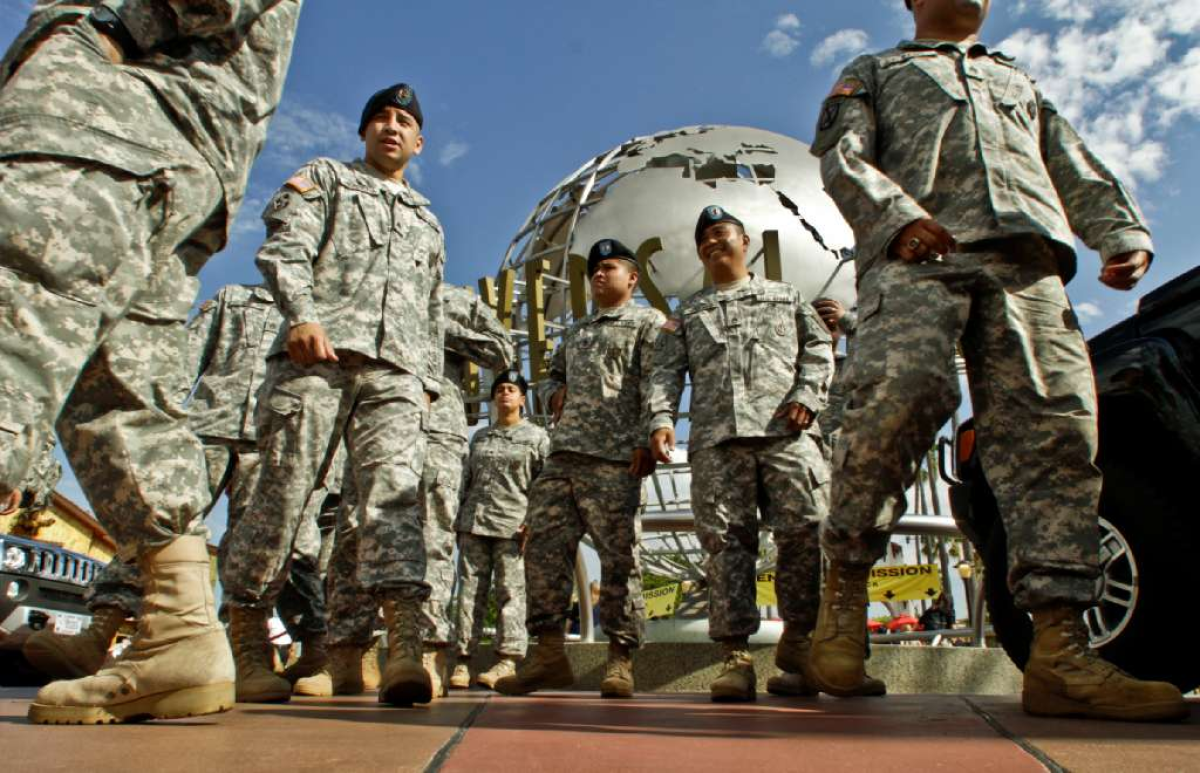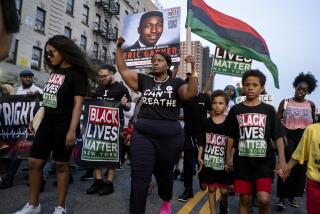Study: Men with troubled childhoods may seek refuge in the military

- Share via
Men who enlisted in the U.S. military over the last four decades are more than twice as likely as the those in the general population to have been sexually abused as children and to have grown up around domestic violence and substance abuse, a new study has found.
The analysis showed that the differences did not exist before the end of the draft in 1973 and the beginning of the all-volunteer force.
Experts said the findings, published Wednesday in JAMA Psychiatry, should be of concern to the military, given the well-established association between childhood trauma and mental health problems. The military has been struggling with surges in suicide, depression and post-traumatic stress disorder.
“The strongest predictor of PTSD is sexual assault in childhood,” said Ronald Kessler, a Harvard University sociologist and suicide expert whose own work has shown many service members suffered from mental illness before enlisting.
The study did not look at why men with difficult upbringings were drawn to the military, but other researchers said the camaraderie and the opportunity to relocate far from home were probably major factors.
The military can serve as a surrogate family, “a group that has ties that will last a lifetime,” said Glen Elder, a University of North Carolina sociologist who has researched why people enlist.
The study relied on 2010 data from an extensive telephone survey conducted by the U.S. Centers for Disease Control and Prevention.
More than 60,000 adults in 10 states and the District of Columbia answered demographic questions and indicated which in a series of 11 “adverse childhood experiences” applied to them.
Among the men who served in the all-volunteer force, 43% reported emotional abuse, 34% said alcohol was abused at home, 27% were exposed to domestic violence, 12% had a household member who was incarcerated, and 11% had been touched sexually.
The researchers compared them with men who turned 18 after the draft ended but never served. On each of the 11 items, the veterans were roughly twice as likely to answer “yes,” according to a statistical analysis taking into account age, race and education levels.
In the draft era, however, the rates were elevated for only two items -- parental separation or divorce and alcohol abuse -- and by less than a third in both cases.
The analysis found a different story for women, who were never subject to the draft. Regardless of whether they served before or after 1973, women with military histories were more likely than their non-veteran counterparts to answer “yes” to several items -- including emotional abuse and household alcohol problems and violence. Overall, however, the differences were less pronounced than they were for men.
John Blosnich, a Department of Veterans Affairs researcher in Pittsburgh who led the study, said many women with abusive childhoods had been victimized by men and therefore might not view the military -- a male-dominated institution -- as a refuge from adversity.
In surveys of both men and women in the military, most said they joined for patriotic or economic reasons. But researchers not involved in the study said they were not surprised that many had rough childhoods.
“The force has been disproportionately recruited from people from single-parent households or the foster care system,” said David Segal, a sociologist at the University of Maryland and expert on military personnel issues. In most cases, they turn out to be fine service members, he said.
While the recent wars have fueled some of the mental health problems seen in the military, they are not the only factor. More than half the military suicides in the last several years were people who never deployed to Afghanistan or Iraq, suggesting that pre-existing conditions played a role.
“We know that having PTSD before joining the Army is a super strong predictor for developing PTSD when the next terrible thing happens to you,” Kessler said.
His own research has found that 20% of service members suffer from common mental illnesses before enlistment.
Follow me on Twitter @AlanZarembo for more news about the military and health.







